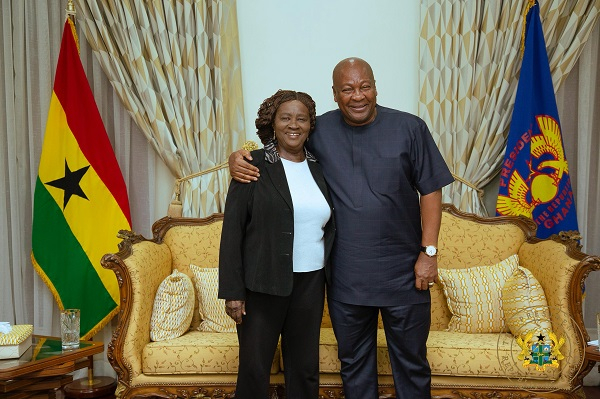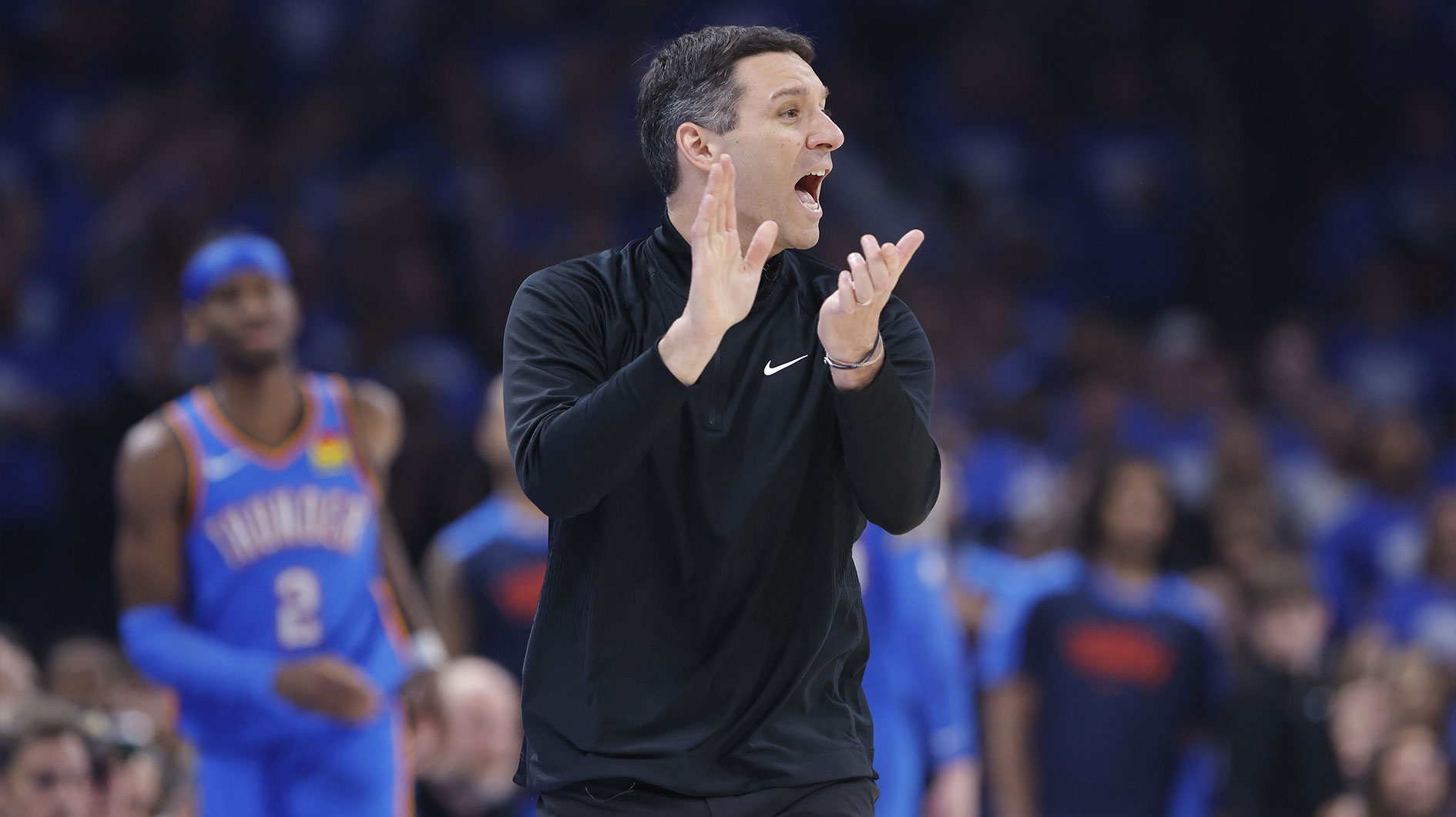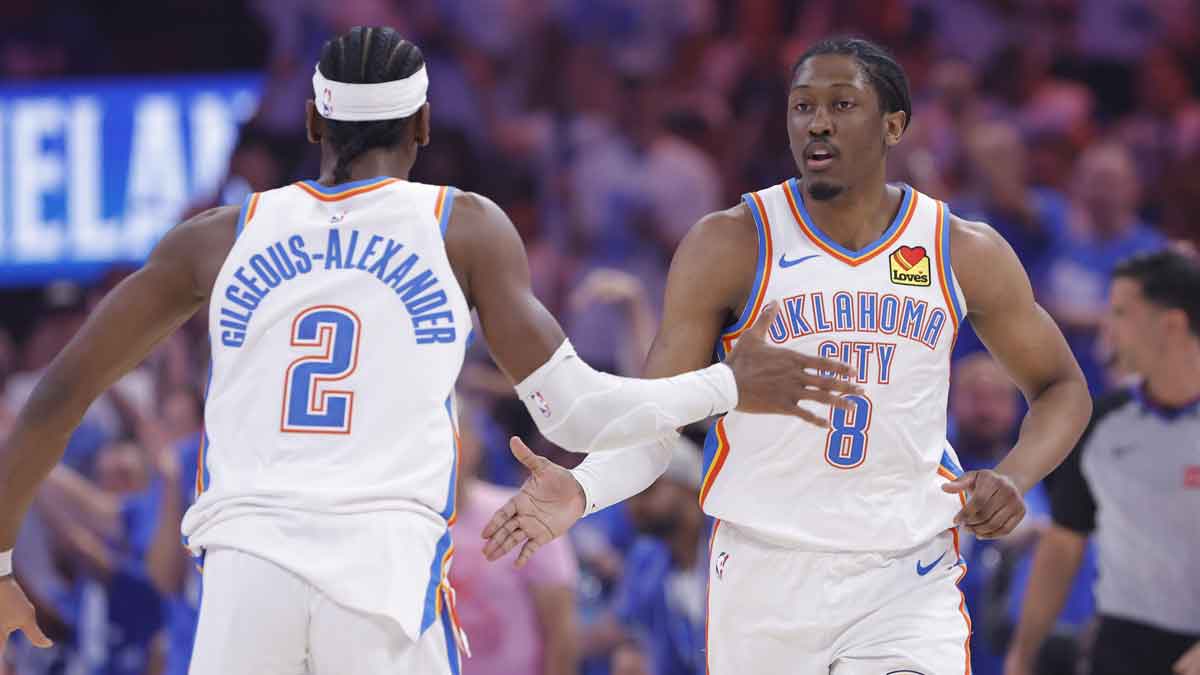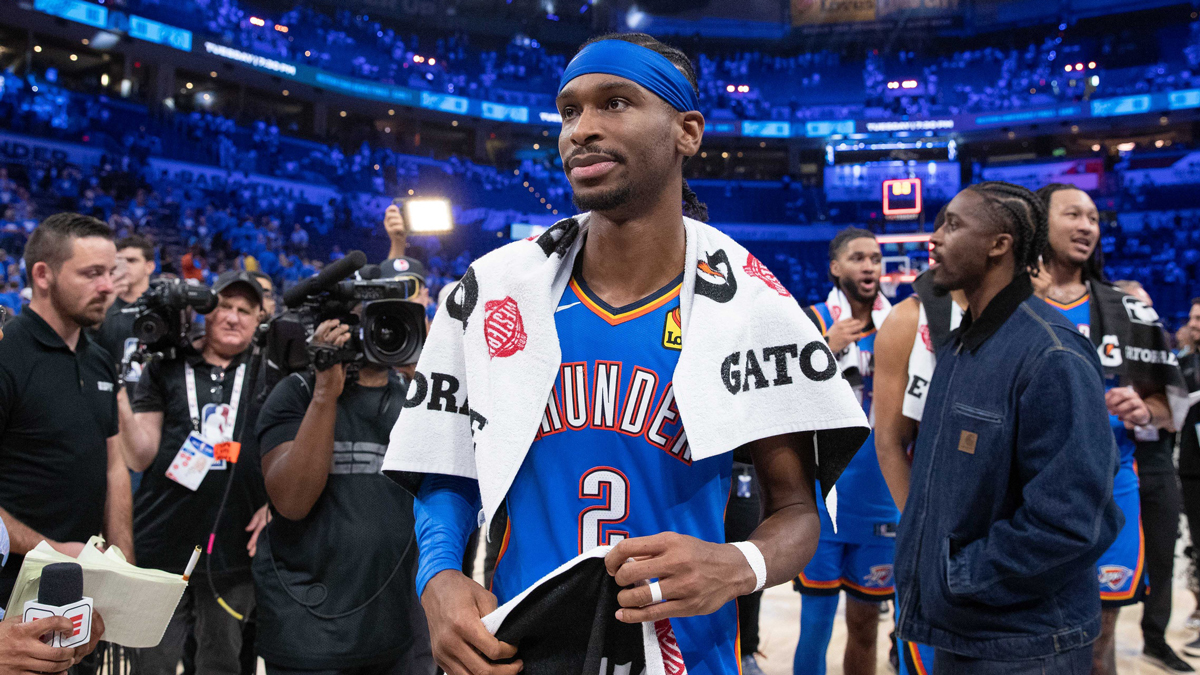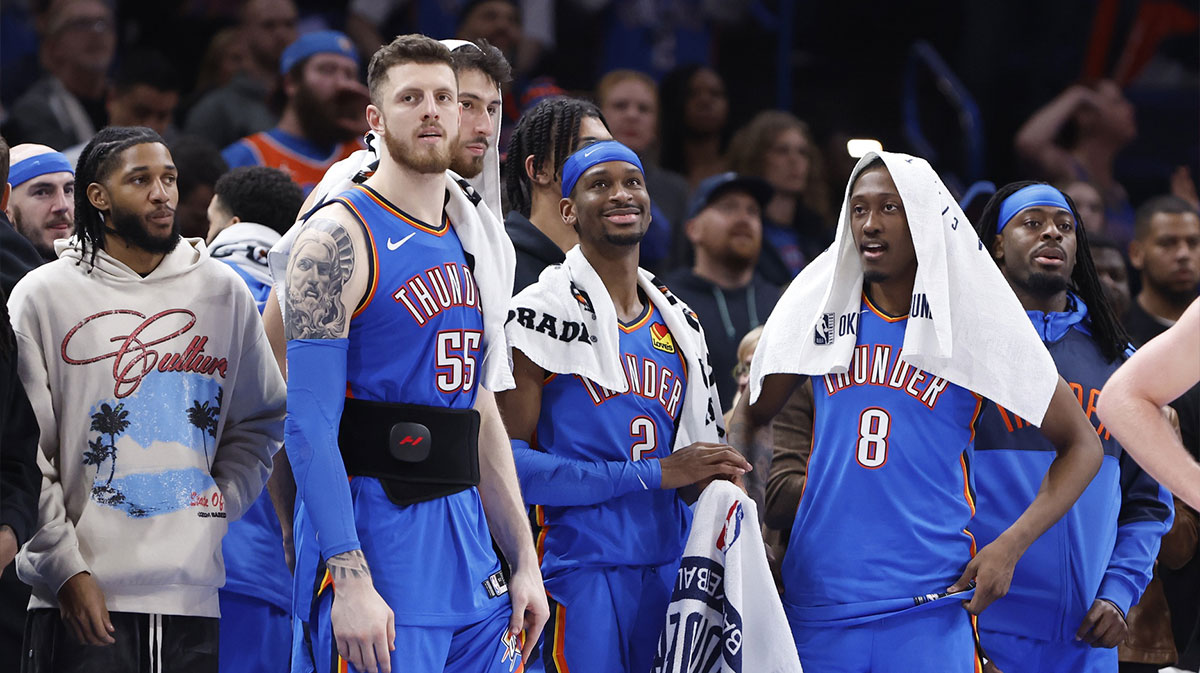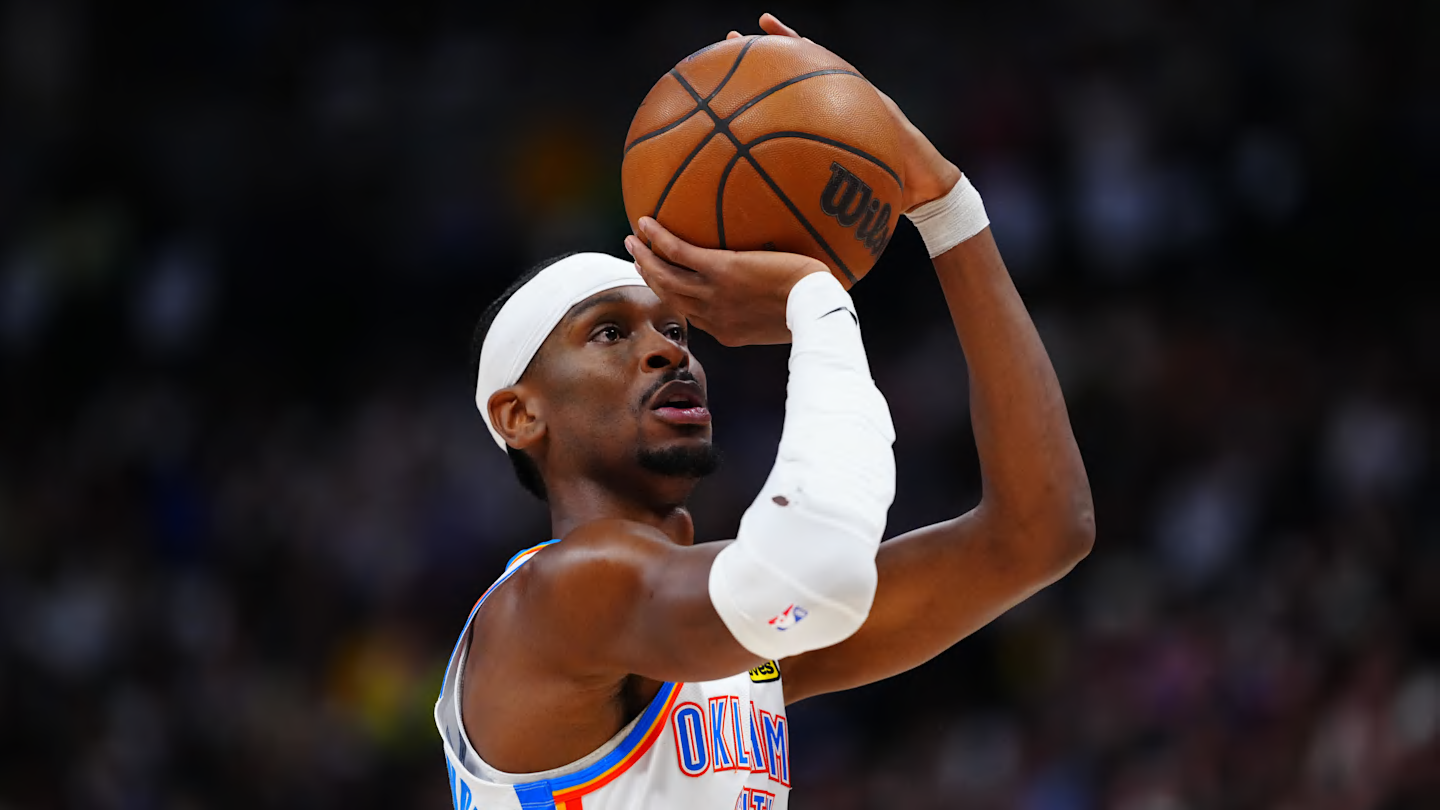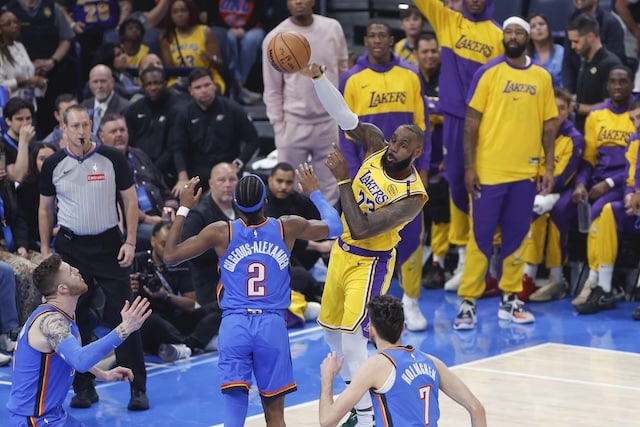The Denver Nuggets Vs The NBA - RealGM Analysis
The Denver Nuggets have finished their season. The 2024-25 season ended as the one in 2023-24 did: in the second round, in seven games, to a young frenetic defense. Denver’s roster problems are hardly different now than they were last May. Though they are large and skilled and tough, they are not especially athletic on either side of the ball, and they don’t have enough shooting, either, to keep endless swarms of defenders away from Nikola Jokic and Jamal Murray. This season, they’re also down one significant poised ball-handler, after the departure of Kentavious Caldwell-Pope, which made them particularly vulnerable to the unrelenting blitzes of the Oklahoma City Thunder.
But while the things preventing the Nuggets from another championship have either stayed the same or gotten worse, there was a fresh ballast of inspiration running through this year’s playoff run; a continual accomplishment of the improbable, as the result of gobsmacking grit and ingenuity. All betting and analytical odds had them losing to the Thunder much sooner and more clinically, and before that, they were projected as losers to the Los Angeles Clippers, who’d put together a much more organized and coherent regular season, finishing the regular season 18-3.
Some will attribute the Nuggets’ valiant fight against the dying of their playoff light to the unusual decision to fire head coach Michael Malone and general manager Calvin Booth, with just three games left until the matchup with L.A. This shot of administrative and leadership adrenaline worked, they’ll say. Perhaps this is correct—and surely, sometime soon enough, we’ll see another team try it out for themselves, if they’re limping into the postseason similarly (Denver had gone 6-10 over their last 16, when they made the call).
Really, though, what Denver was able to do is about their championship trio, above all. Jokic, Murray, and Aaron Gordon have together forged a basketball paradigm rivaled only by that of the Boston Celtics; the Nuggets and Boston are the most consistently successful teams of the 2020’s, though both are now at a competitive crossroads. No matter how undermanned and beaten up their overall team may become, their three main men will make Denver fearsome so long as they’re playing together.
Jokic’s credit is the highest of the three, and well-established. You’re two clicks away from thousands of love fests for the three-time MVP. During the playoffs, Gordon was elevated in the eyes of the basketball world, too, after bullying everyone on the boards and hitting three memorably clutch shots, including an unprecedented buzzer-beating dunk. Murray, throughout Denver’s run—begotten in 2019, when they made their first playoff appearance—has not gotten the same kind of adoration. He has been, instead, the team’s most regular recipient of criticism and doubt.
The full, fair, honest tale of Murray is more complicated than the popular one, in which he rides Jokic’s coattails and only really shows up for big moments of crunch-time postseason glory. His sport’s best zero-time All Star, the beleaguered point guard’s career is defined by its nearly total connection to expectations. Selected 7th overall in 2016, He ran a 46-win offense in his second season, pairing with Jokic to create a 54-win, second-seeded team in his third. His strength, balance, moxie, and tactical genius in the two-man game with his MVP running mate have been paramount to what’s now approaching a decade of excellence in Denver. Without him in the 2021 or 2022 playoffs, the Nuggets were hopeless.
It’s only when Murray is healthy that the Nuggets are seen as title contenders, and that’s no mistake. His resume may be lacking in the accolades and statistics we usually use to evaluate a player, but that doesn’t tell the story of who he is: one of the scariest guys in basketball. His quality of play has been erratic, but that’s because he’s spent his whole NBA life doing just enough to make it beneath the brightest of lights, where he comes alive like no one else. And that’s who the Nuggets, for most of his time with them, have most needed him to be.
But now, they need something else. Not something other than Murray, but something in addition to him. Murray may become more like Jokic—a six-month man, the kind of regular season tide-maker who raises all boats. But that’s unlikely, at this point. Russell Westbrook, this past season, actually was the innings eater they needed for much of the year, but expecting more than one season to go well with Late Westbrook is not a wise stance. Something more sustainable is required; easier water for the Nuggets’ three main boats to float in, so they’re not prodigiously filling holes to the result of an admirable capsizing, every Spring.
Michael Porter, Jr., the fourth member of the well-paid championship core, is the obvious name on the chopping block. Porter career hasn’t lived up to the hype around him as a teenage sensation, largely due to repeated back injuries and related surgeries. He’s a big, stiff wing who doesn’t move very well anymore, and he added a busted shoulder to the list of pains this postseason, forcing him to play with effectively one arm. Despite a few shining moments, his production was predictably pitiful, and fans and analysts are already looking for places to trade the remaining $80 million of his contract, in exchange for role players who help Denver better survive the roughly 100 games it takes to win a title.
There aren’t other real options for the Nuggets. They’ve got to figure out a musical chairs trade arrangement with other teams—Porter is hardly the only bad contract in the NBA—develop internally at a rate that exiled head coach Michael Malone couldn’t achieve, or consider the nuclear option, which means that everyone but Jokic is on the table. They’ve still got a claim to the stake of this ongoing decade’s most important, awarded team, but the next four years, which will comprise the rest of Jokic’s prime, will be hard to make as noble as the past six have been.
The Celtics, again, can understand the position that Denver is in. Both franchises have used up the majority of their transactional ammo, to make good on a duo that showed shockingly good early returns around 2017. What both teams have done has worked; but at what cost? The new financial landscape of the league makes sustained success painfully expensive, and throws proven winners into the land of savage younger animals faster than it ever has. Dynasties, they say, are over. The goal for Denver, potentially impossible, is to buck everything that the NBA has set in motion.


